
Grey Systems-Theory and Application
Scope & Guideline
Empowering Scholars to Tackle Complex System Uncertainties
Introduction
Aims and Scopes
- Grey System Theory Development:
The journal serves as a platform for advancing the theoretical foundations of grey systems, exploring novel models and approaches that enhance predictive capabilities and decision-making processes. - Applied Research Across Disciplines:
A significant aspect of the journal is its emphasis on practical applications of grey theory in diverse fields such as energy forecasting, healthcare, environmental studies, and supply chain management. - Multi-Criteria Decision Making:
The journal frequently publishes research on multi-criteria decision-making (MCDM) frameworks using grey relational analysis, providing methodologies for evaluating complex scenarios with uncertain information. - Forecasting Techniques:
The focus on forecasting methodologies, particularly those that incorporate grey models, highlights the journal's commitment to improving predictive accuracy in various sectors. - Interdisciplinary Approaches:
The journal promotes interdisciplinary research that combines grey systems with other analytical techniques, such as fuzzy logic, neural networks, and genetic algorithms, to address complex real-world challenges.
Trending and Emerging
- Hybrid Grey Models:
There is a clear trend towards the development of hybrid grey models that integrate machine learning and artificial intelligence techniques, enhancing the predictive power and adaptability of traditional grey systems. - Healthcare Applications:
The application of grey systems in healthcare decision-making and forecasting, especially in the context of pandemic management, has seen a significant increase, reflecting the growing importance of data-driven strategies in public health. - Sustainability and Environmental Studies:
Emerging research themes focus on the application of grey systems to sustainability challenges, including energy consumption forecasting and environmental impact assessments, indicating a response to global sustainability concerns. - Complex Systems and Big Data Integration:
The integration of grey systems with big data analytics and complex systems approaches is becoming more prevalent, showcasing the journal's commitment to addressing challenges posed by large and multifaceted datasets. - Decision Support Systems:
An increasing number of studies are focusing on developing decision support systems based on grey relational analysis, reflecting a trend towards practical tools that aid decision-making in uncertain environments.
Declining or Waning
- Traditional Grey Models:
While foundational grey models continue to be relevant, there is a noticeable decline in publications focusing solely on traditional grey models without enhancements or integrations with modern techniques. - Generalized Applications in Agriculture:
Although agriculture remains a significant area of study, the specific focus on generalized applications of grey models in agricultural contexts has waned, possibly due to a shift towards more complex and tailored models. - Single-Domain Applications:
Research that focuses solely on single-domain applications of grey systems is less frequent, indicating a trend towards more interdisciplinary and integrated approaches that encompass multiple fields.
Similar Journals
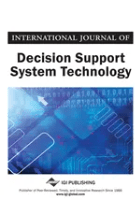
International Journal of Decision Support System Technology
Advancing Knowledge in Decision Support Technologies.International Journal of Decision Support System Technology, published by IGI Global, is a leading publication in the field of decision support systems, bridging the gap between theoretical advancements and practical applications. With its ISSN 1941-6296 and E-ISSN 1941-630X, this journal has been a prominent platform for researchers and professionals since its inception in 2009. Covering a wide range of topics within the realms of Computer Science and Modeling and Simulation, it currently holds rankings of Q3 and Q4, respectively, in the 2023 category quartiles. The journal is committed to disseminating innovative research that enhances decision-making processes through advanced computational techniques. Even without an open access option, it maintains a robust academic presence and aims to foster collaboration among scholars, making it an invaluable resource for students and professionals eager to stay at the forefront of technology and decision-making methodologies. With a focus on accessibility and relevance, the International Journal of Decision Support System Technology continues to shape the future of decision support research.
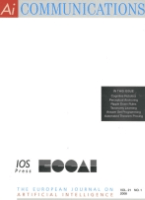
AI COMMUNICATIONS
Advancing Knowledge in the AI Landscape.AI COMMUNICATIONS is a distinguished journal published by IOS PRESS, focusing on the dynamic field of Artificial Intelligence. With a rich history dating back to 1987, this journal covers a broad spectrum of topics, including the latest advancements in AI methodologies, applications, and implications for society. Despite holding a Q3 classification in the 2023 category of Artificial Intelligence, it provides an essential platform for dialogue and dissemination of research, highlighted by its global accessibility in the realm of AI communications. Researchers, professionals, and students alike will find a wealth of knowledge within its pages, which aim to bridge the gap between cutting-edge research and practical applications in AI. By contributing to this journal, authors have the potential to engage with a diverse audience and impact the ongoing discourse surrounding artificial intelligence technologies.
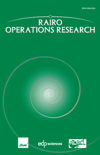
RAIRO-OPERATIONS RESEARCH
Navigating complexity through innovative research and insights.RAIRO-Operations Research is a distinguished journal published by EDP Sciences S A, focusing on the intricate fields of operations research, management science, and computer science applications. Established in 1977, this French-based journal encompasses a rich legacy of contributing to theoretical advancements and practical applications that equip researchers, professionals, and students with the insights necessary to navigate complex decision-making environments. With a notable Scopus ranking in various categories, including a Q3 position in Computer Science Applications, Management Science and Operations Research, and Theoretical Computer Science, the journal aims to foster innovation and share impactful research findings. As an insightful platform, RAIRO-Operations Research is essential for those seeking to deepen their understanding and enhance their expertise in operational methodologies, while also offering a range of access options for its wide readership. Delve into the journal to explore transformative research that pushes the boundaries of operations research.
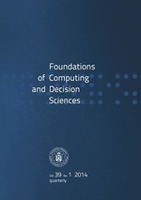
Foundations of Computing and Decision Sciences
Championing open access to transformative research.Foundations of Computing and Decision Sciences, published by SCIENDO, stands as a pivotal platform in the fields of computer science and decision-making theories. Established as an open-access journal since 2012, it facilitates the dissemination of innovative research and insights, catering to a global audience of scholars, practitioners, and students in Germany and beyond. With an ISSN of 0867-6356 and an E-ISSN of 2300-3405, the journal has made significant strides in its ranking, currently positioned in the Q3 category in Computer Science (miscellaneous) and Q4 in Theoretical Computer Science. The journal aims to foster interdisciplinary dialogues and significantly contribute to theoretical and practical advancements within the scope of computing and decision sciences. Its commitment to open access ensures that cutting-edge research is freely available, reinforcing the journal's role as a beacon for academic inquiry and knowledge sharing. With a converging timeline extending to 2024, the journal encourages submissions that address contemporary challenges and breakthroughs across various computing disciplines.

JOURNAL OF MULTIPLE-VALUED LOGIC AND SOFT COMPUTING
Pioneering Research in Soft Computing Paradigms.Journal of Multiple-Valued Logic and Soft Computing, published by Old City Publishing Inc, is a dedicated forum for advancing the fields of logic and soft computing. Since its inception in 2003, this journal has positioned itself as a valuable resource for researchers, professionals, and students interested in the complex interplay between multiple-valued logic systems and computational methodologies. With a broader reach into theoretical computer science, the journal is categorized in the Q4 quartiles across key areas, showcasing its role in disseminating relevant research despite its current position. This peer-reviewed publication silos essential discussions and breakthroughs that serve as a foundation for ongoing innovation in logic and computing theories. Though not currently open access, the journal continues to attract critical contributions that underscore its commitment to advancing knowledge in mathematical logic and software development through its effective symposium-like format, promoting collaboration among various stakeholders in the scientific community.

Neural Network World
Connecting Minds: Where Technology Meets NeuroscienceNeural Network World, published by the Academy of Sciences of the Czech Republic, Institute of Computer Science, is a preeminent journal dedicated to the fields of artificial intelligence, hardware and architecture, software engineering, and neuroscience. Since its inception in 1994, this journal has provided a platform for the dissemination of pioneering research and technical advancements in neural networks and their applications. Operating from the heart of Prague, this publication holds a Q4 quartile ranking across key categories, highlighting the growing interest and relevance in its multidisciplinary focus. Although it does not currently offer open access, its commitment to scholarly rigor ensures that readers engage with high-quality content, making it a valuable resource for researchers, professionals, and students alike. As the field evolves, Neural Network World serves as an essential forum for innovative ideas and critical discussions, reinforcing its significance in driving forward the future of technology and neuroscience.

Axioms
Empowering Research Through Mathematical Insight.Axioms is a distinguished open-access journal published by MDPI since 2012, dedicated to the field of mathematics. Based in Switzerland, it serves as a platform for the dissemination of high-quality research across various domains including Algebra, Number Theory, Analysis, Geometry, Topology, Logic, and Mathematical Physics. With an impressive Q3 ranking across multiple categories in the 2022 classification, Axioms maintains a robust presence in the academic community, reflected in its Scopus rankings which position it favorably within the top percentiles of its respective fields. The journal aims to facilitate open and rapid access to groundbreaking theoretical advancements and practical applications, making it an invaluable resource for researchers, professionals, and students alike. Researchers are encouraged to contribute their findings to foster innovative discussions and collaborations in the mathematical sciences.

International Journal of Fuzzy Logic and Intelligent Systems
Transforming Ideas into Intelligent SolutionsInternational Journal of Fuzzy Logic and Intelligent Systems, ISSN: 1598-2645, is a prestigious journal published by the Korean Institute of Intelligent Systems, dedicated to advancing the fields of Artificial Intelligence, Computational Theory and Mathematics, Computer Science Applications, Logic, and Signal Processing. Established to foster interdisciplinary research, this journal has quickly established its reputation, reaching a respectable Q3 quartile ranking across multiple categories in 2023. It serves as a vital resource for researchers, professionals, and students, offering insights into cutting-edge methodologies and innovative applications of fuzzy logic and intelligent systems. With a focus on disseminating high-quality research, the journal attracts contributions that drive the evolution of intelligent technologies and their practical implications. Published from South Korea, the journal is positioned to impact the global community, facilitating a deeper understanding of intelligent systems in various domains.

International Journal of Computers Communications & Control
Advancing Knowledge in Computational FrontiersThe International Journal of Computers Communications & Control, with ISSN 1841-9836 and E-ISSN 1841-9844, is a leading peer-reviewed journal published by CCC PUBL-AGORA UNIV since 2006, dedicated to fostering advancements in the fields of computational theory, computer networks, and applications. Based in Romania, this open access journal is committed to providing a platform for researchers, professionals, and students to disseminate cutting-edge research, innovative methodologies, and significant findings within a rapidly evolving technological landscape. As evidenced by its growing impact, the journal has achieved notable rankings in Scopus, including the 77th percentile in Computational Theory and Mathematics and 62nd percentiles in both Computer Networks and Communications and Computer Science Applications, with category quartiles reflecting its esteemed position in the academic community. The scope is broad, embracing interdisciplinary approaches that connect various dimensions of computer science and communication technologies, making it an essential resource for those looking to stay at the forefront of research and development in these areas.
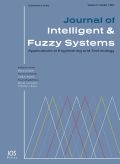
JOURNAL OF INTELLIGENT & FUZZY SYSTEMS
Pioneering Insights in Fuzzy Logic and SystemsJOURNAL OF INTELLIGENT & FUZZY SYSTEMS is a premier publication dedicated to advancing the field of artificial intelligence, fuzzy systems, and related engineering disciplines. Published by IOS PRESS, this journal plays a vital role in disseminating innovative research and methodologies that push the boundaries of knowledge from its inception in 1993 through 2024. With an impact factor underscoring its significance, it maintains a strong reputation for quality and rigor, achieving Q3 in Artificial Intelligence and Q2 in Engineering (miscellaneous) as reported in 2023. Researchers can access invaluable insights into current trends and applications, making it an essential resource for professionals and scholars alike. The journal welcomes contributions that bridge theoretical advancements and practical implementations, fostering a community of interdisciplinary collaboration. Situated in the heart of the Netherlands, the JOURNAL OF INTELLIGENT & FUZZY SYSTEMS is committed to enhancing understanding in the realms of mathematics, statistics, and probability, with Scopus rankings reflecting its competitive edge across various fields.